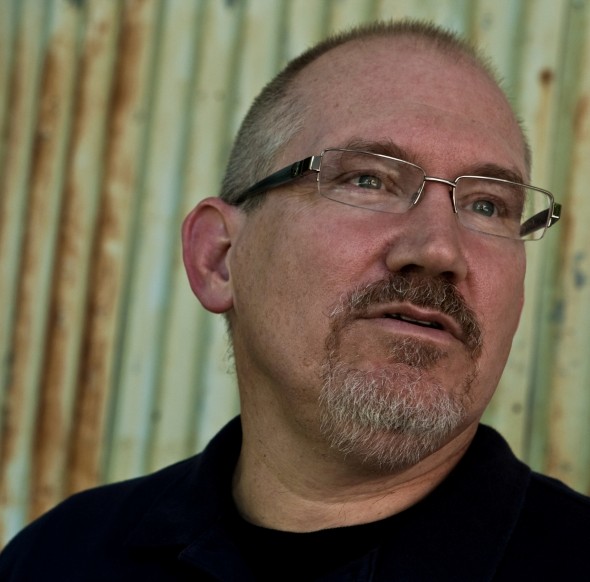Challenge Your Youth by Alvin Reid
- Details
- Hits: 15314
 Morgan introduced herself after I spoke at her church. She enthusiastically described the ministry she and her friends had started to fight the blight of human trafficking.
Morgan introduced herself after I spoke at her church. She enthusiastically described the ministry she and her friends had started to fight the blight of human trafficking.
They were seeking to offer gospel hope to girls vulnerable to the industry and those rescued from it. At the time I met her, she and her friends had raised almost $4,000 to send overseas to rescue young women. Now, nearly two years later, they've raised more than $40,000 to build a safe house in Calul, Moldova, a nation whose number one export is trafficked women.
Did I mention Morgan was only 14 when I met her? Morgan and her friends Brianna, Maleah, McCall, Claire, Kristie, and Elise launched a movement propelled by the gospel. A bunch of middle school girls decided not to waste their high school years in order to make a remarkable impact for Christ.
Open Your Eyes
Morgan gives credit for this ministry to her family and to her church—a congregation serious about taking the gospel to the nations. At 13, she and her mom went on a church trip to India. Morgan would be the first to admit their ministry never could have taken off without their parents, student pastor, and congregation encouraging and supporting them. The ministry these girls birthed (Save Our Sisters Today) is just one example of believers living the mission while they're young. Virtually every church has youth like Morgan. But are the churches doing what they can to find these youth, direct their passions, and commit to encouraging them?
Parents who love Jesus yearn for their children to love Jesus as well. Student ministries seek to engage students with the gospel and help them live out the gospel. But there's a problem. Too many churches assume a posture toward youth more reflective of MTV than of the Bible. Too often, and with little reflection, we view teens as adolescents in a timeout between childhood and adulthood. "They are just kids," we say. "Boys will be boys." Youth ministries are often pressured to offer events more than engagement, trivia more than truth. But if students can learn trigonometry in high school, they can certainly learn theology in church.
Extended Boyhood Epidemic
Our culture today teems with immature young men: the average 21-year-old male in the United States has played 10,000 hours of video games. When you consider, as Malcolm Gladwell has shown, that it takes 10,000 hours of deliberate practice to become an expert at something, no wonder so many 20-something males struggle in the adult world. Moreover, the National Study of Youth and Religion found young adults in churches have often been taught the Bible from the perspective of what sociologist Christian Smith has termed "moralistic therapeutic deism." The cumulative result is a generation of churched youth marked more by activity and moralism than by the mission of the living God.
But what if we stopped this trend? What if we challenged the youth in our churches to live missionally?
Often in Scripture we read of remarkable young people. Sold into slavery at 17, Joseph lived for God regardless of his circumstances. Samuel heard God's voice as a lad when God's word was rare. David killed Goliath as a teenager, the youngest and scrawniest of many sons. Josiah led a revival, and God called Jeremiah, each while they were young. Daniel and his friends were possibly as young as today's middle school youth when they were deported to Babylon, yet they stood for their faith. And in the New Testament, we encounter Jesus' disciples—young men themselves—as well as Paul's specific exhortation to Timothy not to let anyone look down on him because of his youth. This array of evidence must not be ignored.
Jonathan Edwards said the Great Awakening was essentially a youth movement. Less than a century later, in 1806, college students sitting under a haystack sparked a worldwide missions movement. Near the end of the 19th century, a student volunteer movement saw thousands of young people take the gospel to the nations.
So, granting the vast changes in the past 200 years, how should we see youth today? Not as children finishing childhood but as young adults entering adulthood, capable of understanding and living out the gospel as missionaries in an increasingly unChristian culture. We who lead youth as parents and student pastors must see ourselves as missionary strategists equipping students to live on mission now, not later.
Five Suggestions
What does this transformation look like?
1. Build your student ministry and your parenting on the gospel. Show them, as Tim Keller observes, that the gospel isn't merely the ABC of salvation but the A to Z of Christianity. A missional vision that doesn't arise out of response to the gospel leads to legalistic activism, not biblically driven ministry.
2. Involve them in the mission locally. We've tried to help our own children, now grown and married, to see how this mission looks through simple things—from how we engage our next-door neighbors to how we treat servers at restaurants.
3. Don't keep them in the dark about the mission globally. One of my mantras is, "Get your children out of the country before they finish high school." By the time our daughter Hannah was 18, she'd been on mission trips to four continents. Our son Josh has traveled to three continents and done mission work in several major U.S. cities. These trips help teenagers see that the gospel isn't just their parents' home-brewed superstition; it's true and worthy of proclamation to everyone, everywhere.
4. Demonstrate missional lives. Let them see you living missionally while you teach them how to do so. Discipleship is usually more caught than taught.
5. Believe in them. Youth need three things: a vision for their lives as big as the gospel, encouragement to live radically for Jesus Christ now, and the permission to do so.
Missionary statesman Stanley Jones was asked once how he helped so many young people become effective missionaries across the globe. "I take a young person," he replied, "and I put a big crown over their head. Then, I help them to grow into it."
If we're centered on the gospel and committed to living missionally, we can do the same with today's youth as well.
Editors' note: Alvin Reid will lead a workshop titled "Creating a Missional Culture of Gospel-Centered Students" at the next Rooted Conference, October 10 to 12, 2013 in Atlanta.
Alvin Reid serves as professor of evangelism and student ministry at Southeastern Baptist Theological Seminary. With an MDiv and PhD in evangelism from Southwestern Seminary and decades of experience in youth ministry, Reid has written extensively on evangelism, missional Christianity, spiritual awakening, and student ministry, having authored more than a dozen books. His newest book is As You Go: Creating a Missional Culture of Gospel-Centered Students (NavPress, 2013).
http://thegospelcoalition.org/blogs/tgc/2013/09/03/challenge-your-youth/










 I regularly preach about work and must confess: It is easy to share stories of executives, doctors, and engineers and forget that the most common occupations in America are retail salesperson and cashier.
I regularly preach about work and must confess: It is easy to share stories of executives, doctors, and engineers and forget that the most common occupations in America are retail salesperson and cashier. The Internet is abuzz with conversation about the "T" in "LGBT" this week, after California Gov. Jerry Brown signed into law legislation supporting "equal access" for students who believe themselves to be the opposite gender from their biological sex.
The Internet is abuzz with conversation about the "T" in "LGBT" this week, after California Gov. Jerry Brown signed into law legislation supporting "equal access" for students who believe themselves to be the opposite gender from their biological sex. There are several reasons why pastors don't use illustrations in their sermons. Some pastors leave them out on principle, thinking illustrations steal stage time from the Scriptures. Illustrations, they say, are ear candy to keep people's attention off their iPhones.
There are several reasons why pastors don't use illustrations in their sermons. Some pastors leave them out on principle, thinking illustrations steal stage time from the Scriptures. Illustrations, they say, are ear candy to keep people's attention off their iPhones. Pastors need your care. They aren't above it, no matter what they may think.
Pastors need your care. They aren't above it, no matter what they may think.










